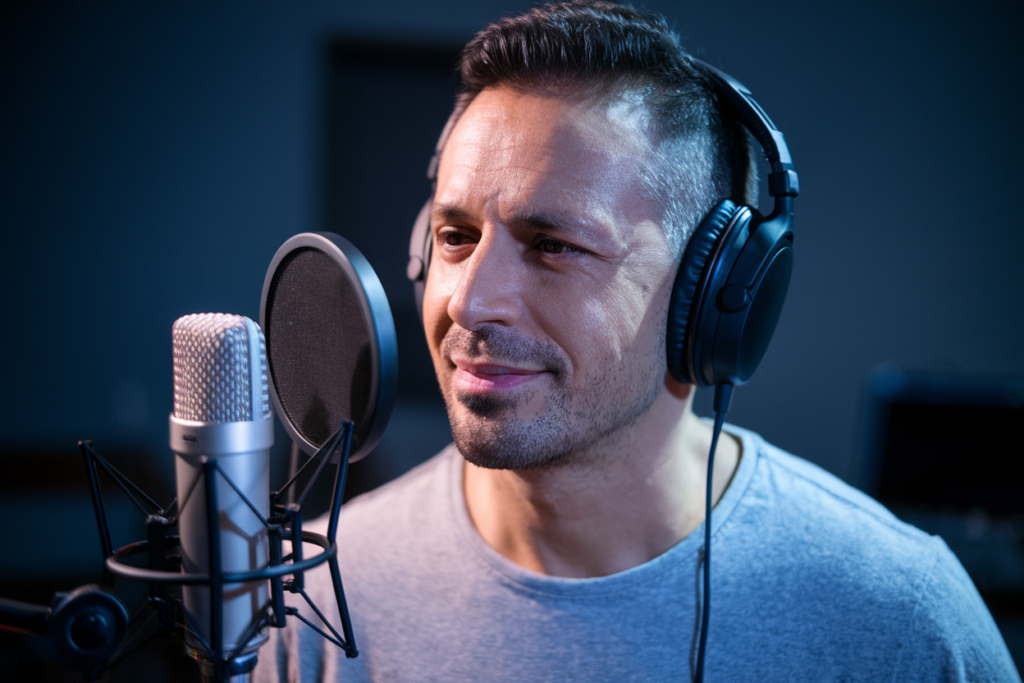Key Takeaways
- Distinct Origins: Cyprus Turkish and Turkish from Turkey share Turkic roots but have diverged due to unique historical and cultural influences on the island.
- Vocabulary Differences: Cyprus Turkish incorporates loanwords from Greek, Italian, and English, while standard Turkish draws primarily from Arabic and Persian, leading to significant vocabulary distinctions.
- Pronunciation Variations: Pronunciation in Cyprus Turkish features softer consonants and different vowel sounds compared to standard Turkish, creating a more melodic auditory experience.
- Grammatical Nuances: While both dialects follow similar syntactical structures, subtle grammatical differences exist that reflect localized usage patterns unique to each region.
- Cultural Influences: The impact of British colonialism and the presence of Greek Cypriots shape the language’s evolution in Cyprus, further differentiating it from standard Turkish.
- Communication Implications: Understanding these linguistic differences is crucial for effective communication and cultural exchange when engaging with Cypriots or exploring educational resources related to Cyprus.
Ever wondered how Cyprus Turkish differs from the Turkish spoken in Turkey? While both languages share roots, they’ve evolved uniquely, shaped by history and culture. This distinction can be a bit confusing for those looking to navigate the rich tapestry of the Turkish language.
You might find that nuances in vocabulary, pronunciation, and even grammar set them apart. Understanding these differences isn’t just about language; it’s about grasping the identity and heritage behind each dialect. Whether you’re planning a visit or diving into linguistic studies, knowing how Cyprus Turkish stands out will enrich your experience and deepen your appreciation for this fascinating corner of the world.
Overview of Cyprus Turkish and Turkish Language
Cyprus Turkish and the Turkish spoken in Turkey share a common origin but have diverged significantly over time. Both languages stem from the same Turkic roots, yet unique historical events and cultural influences shaped their development.
Vocabulary Variations
Vocabulary differences stand out between these two dialects. Cyprus Turkish incorporates loanwords from Greek, Italian, and English due to historical interactions on the island. In contrast, standard Turkish has absorbed words primarily from Arabic and Persian. These distinctions can affect everyday communication.
Pronunciation Differences
Pronunciation marks another area of divergence. Cyprus Turkish often features softer consonants and vowel shifts that differ from those in standard Turkish. For instance, you might notice that certain sounds are less pronounced or altered when spoken by a native Cypriot.
Grammar Nuances
Grammar also reveals notable variations. While both dialects follow similar syntactical structures, some grammatical constructions vary slightly in usage or formality levels. Understanding these nuances helps appreciate how each community expresses itself linguistically.
Recognizing these differences enriches your understanding of both dialects’ identities. Whether you’re traveling to Cyprus or exploring linguistic studies, grasping these distinctions enhances your experience with the language landscape present in both regions.
Historical Context
Cyprus Turkish and the Turkish spoken in Turkey developed within distinct historical frameworks that shaped their unique characteristics. These influences significantly contributed to the evolution of each dialect.
Brief History of Cyprus
Cyprus has a rich history marked by various civilizations, including Greek, Roman, Byzantine, and Ottoman rule. The arrival of the Ottomans in 1571 established Turkish as an influential language on the island. While maintaining ties with Anatolia, Cyprus experienced substantial cultural exchanges that affected language use. The division between Greek Cypriots and Turkish Cypriots further deepened during British colonial rule from 1878 until independence in 1960. This complex history fostered a distinct identity for Cyprus Turkish through localized adaptations and linguistic shifts.
Language Development in Cyprus
Language development in Cyprus reflects its diverse heritage. Over time, Cyprus Turkish incorporated numerous loanwords from Greek, Italian, and English due to significant contact with these cultures. For instance, everyday vocabulary often includes terms not found in standard Turkish. Pronunciation also differs; softer consonants characterize how words are pronounced in Cyprus Turkish compared to their counterparts in Turkey. Additionally, grammatical structures exhibit subtle variations influenced by local usage patterns. Understanding these nuances enhances your appreciation of both dialects while highlighting the unique identity rooted in this island’s history.
Linguistic Differences
Cyprus Turkish and Turkish spoken in Turkey feature distinct linguistic characteristics shaped by their unique histories and cultural contexts. Understanding these differences enhances your appreciation for both dialects.
Phonetic Variations
Phonetic variations between Cyprus Turkish and standard Turkish are noticeable. Cyprus Turkish often employs softer consonants, which can create a more melodic sound. Vowel shifts also occur, leading to different pronunciations of certain words. For instance, the pronunciation of ‘a’ may sound more like ‘e’ in specific contexts. These phonetic traits contribute to a distinct auditory experience when listening to either dialect.
Vocabulary Distinctions
Vocabulary distinctions abound between the two dialects due to historical influences. Cyprus Turkish incorporates loanwords from Greek, Italian, and English, reflecting the island’s diverse cultural interactions. You might hear terms related to local cuisine or everyday life that differ significantly from those used in Turkey. Standard Turkish primarily integrates words from Arabic and Persian, showcasing a different set of influences that shape its vocabulary landscape.
Grammatical Differences
Grammatical differences exist as well, although they may be subtler than phonetic or vocabulary variations. Certain constructions in Cyprus Turkish reflect localized usage patterns not commonly found in standard Turkish. For example, you might notice changes in verb conjugation or sentence structure that align with regional speech habits. These grammatical shifts enrich the language’s uniqueness while still maintaining an underlying connection to its roots.
Exploring these linguistic differences reveals how deeply intertwined history and culture are with language development on both sides of the divide.
Cultural Influences
Cultural influences play a significant role in shaping the distinct characteristics of Cyprus Turkish compared to standard Turkish. These influences arise from historical events and interactions with various cultures over time.
Impact of British Colonialism
British colonialism, lasting from 1878 to 1960, left a notable imprint on Cyprus Turkish. The English language introduced numerous terms into daily communication, particularly in education, law, and administration. You’ll find that many Cypriots incorporate English phrases seamlessly into their conversations. This linguistic blend reflects the island’s unique identity and showcases how colonial history can reshape language use.
Influence of Greek Cypriots
The cultural presence of Greek Cypriots heavily influenced Cyprus Turkish vocabulary and expressions. As both communities coexisted on the island for centuries, you’ve likely noticed shared phrases and loanwords between the two dialects. This influence extends beyond mere words; it encompasses customs, traditions, and social practices that enrich the local context. For instance, food-related terminology often reflects culinary practices common to both cultures but may differ significantly from those found in Turkey.
These cultural dynamics not only highlight localized adaptations but also demonstrate how languages evolve within their environments. Understanding these layers deepens appreciation for both dialects while showcasing the rich tapestry woven through Cyprus’s complex history.
Practical Implications
Understanding the distinctions between Cyprus Turkish and Turkish spoken in Turkey carries practical implications for communication, education, and cultural exchange.
Communication Challenges
Navigating conversations can present challenges due to differences in vocabulary and pronunciation. If you’re engaging with Cypriots, expect variations that might not align with standard Turkish. For instance, specific terms related to local customs or cuisine may seem unfamiliar. Additionally, softer consonants and unique vowel sounds in Cyprus Turkish create a distinct auditory experience. This melodic quality might take some getting used to for those accustomed to the harsher tones of standard Turkish. Misunderstandings could arise during discussions if one isn’t familiar with these nuances.
Language in Education
Educational contexts reflect these linguistic differences too. In Cyprus, schools often incorporate English words alongside localized expressions from Cyprus Turkish. This blend influences how students learn both languages and interact culturally. If you’re considering educational materials or resources targeting Cypriot audiences, acknowledging this bilingual environment is crucial. You might encounter phrases that differ from what you’d expect in Turkey’s curriculum—this reflects historical influences shaping language use on the island.
Recognizing these practical implications enhances your ability to communicate effectively across cultures while fostering deeper connections with diverse communities shaped by their unique linguistic identities.
Conclusion
Recognizing the differences between Cyprus Turkish and standard Turkish enhances your understanding of both languages. These variations reflect rich cultural histories and unique local adaptations that contribute to their distinct identities. By appreciating these nuances, you gain insight into how language evolves within its social context.
Whether you’re communicating with friends or exploring Cyprus’s vibrant heritage, knowing these distinctions can enrich your experience. This awareness not only fosters better communication but also deepens connections within diverse communities shaped by their linguistic backgrounds. Embracing these differences truly opens the door to a more meaningful engagement with the cultures they represent.
Frequently Asked Questions
What are the main differences between Cyprus Turkish and standard Turkish?
Cyprus Turkish and standard Turkish differ in vocabulary, pronunciation, and grammar. Cyprus Turkish incorporates loanwords from Greek, Italian, and English due to historical influences. Pronunciation features softer consonants and distinct vowel shifts, giving it a melodic sound. Additionally, there are subtle variations in grammatical constructions that reflect localized usage.
How has history influenced the development of Cyprus Turkish?
The historical context of Cyprus greatly shaped its dialect. After the Ottomans established control in 1571, Turkish became prominent on the island. British colonial rule (1878-1960) further impacted linguistic evolution by introducing English terms and fostering cultural divides between Greek and Turkish Cypriots.
Why does Cyprus Turkish have unique vocabulary?
Cyprus Turkish has a unique vocabulary due to its rich cultural interactions throughout history. It includes terms related to local cuisine and daily life that may not exist in standard Turkish. Influences from Greek, Italian, and English contribute to this diverse lexicon.
What phonetic features distinguish Cyprus Turkish?
Cyprus Turkish is characterized by softer consonants and vowel shifts compared to standard Turkish. These phonetic differences create a distinct auditory experience that reflects the island’s unique identity shaped by various civilizations over centuries.
How do educational contexts affect language use in Cyprus?
In educational settings in Cyprus, both English words and localized expressions from Cyprus Turkish are integrated into learning environments. This bilingual approach influences how students communicate culturally while also highlighting the importance of understanding linguistic nuances for effective interaction within diverse communities.







